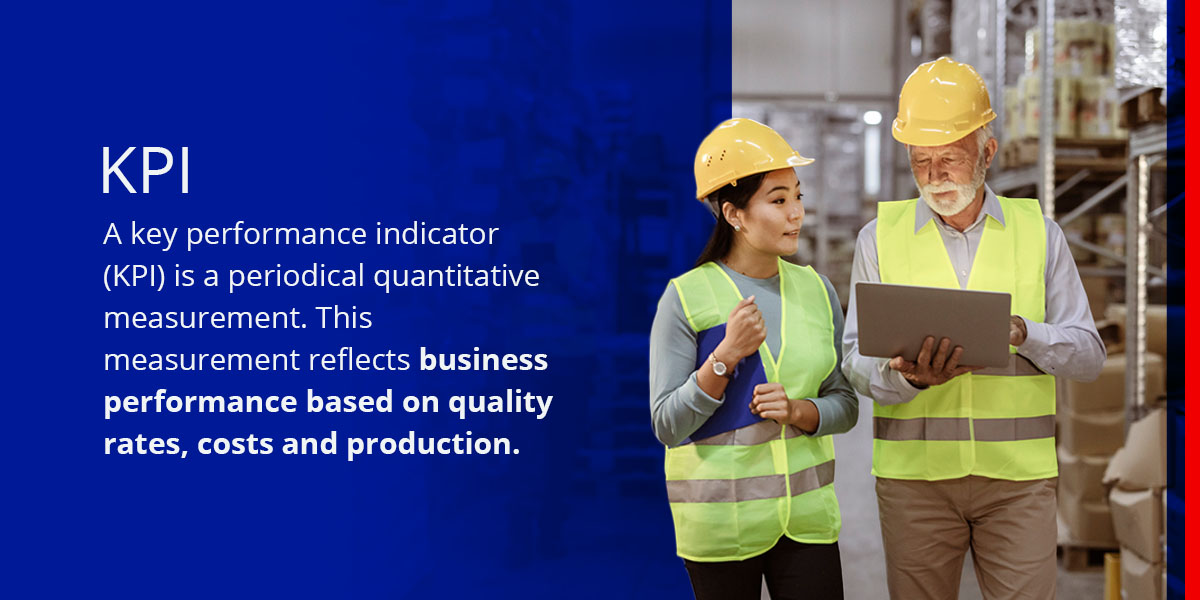Blog
Common Supply Chain Acronyms and Abbreviations

With a wide variety of supply chain abbreviations in the logistics industry, learning them all at once can be challenging. Reviewing common logistics acronyms is an excellent way to familiarize yourself with supply chain terminology.
Common Abbreviations in Logistics
Learning supply chain abbreviations and acronyms can help you understand how the logistics industry operates, allowing you to communicate and work efficiently. To increase your logistics knowledge, consider these common terms used in supply chain management:
3PL and 4PL
Third-party logistics (3PL) providers are companies that provide outsourced logistics services. These providers can manage or supply logistics resources, and some companies do both. A 3PL is sometimes referred to as a logistics service provider (LSP).
Fourth-party logistics providers (4PL) orchestrate 3PL technologies and align resources. These non-asset-based contractors organize resources and provide end users with logistics services. They direct supply chain aspects and supervise warehouse operations and transportation. A 4PL is also known as a lead logistics provider (LLP).
ATO
An assemble-to-order (ATO) strategy stocks and assembles product components until a company receives customer orders. When the company receives a customer order, employees assemble and ship the final product. This strategy allows companies to customize their products while lessening lead times and reducing their finished product inventories.
B2B and B2C
A business-to-business (B2B) company sells products or services to other businesses. A business-to-consumer (B2C) business sells products or services directly to clients. Some individuals refer to these market classifications as business strategies, but they simply indicate which market type a company sells to.
CDC
A composite distribution center (CDC) is a logistics facility that serves as a warehouse and a distribution center. This type of establishment manages, stores and distributes products. A CDC can improve business efficiency by providing a central hub for all supply chain activities.
DC
While a warehouse distributes goods within a business’s internal real estate or supply chain, a distribution center (DC) is a type of warehouse that distributes products outside its internal operations.
ERQ
Enterprise resource planning (ERQ) is a software platform that manages business operations using integrated software modules. It can handle functions such as finance, manufacturing, supply chain management and human resources management.
FCL
A full container load (FCL) refers to a container holding a single shipment traveling to one destination. An FCL can be a full container, but it can also refer to a part-full container. A shipment is considered an FCL as long as a company delivers it to one location without combining it with other shipments.
FMCG
Fast-moving consumer goods (FMCG) business sectors produce and ship high-volume and typically low-cost goods. These goods typically include products sold in grocery stores such as food and drink items.
GTM
A go-to-market (GTM) strategy is an approach companies use to launch new products or services. A GTM strategy helps businesses determine their target audiences, prepare services or products for launch and organize their messaging.
IDW
Irregular dimension and weight (IDW) refers to products with an atypical size or weight. IDW products require special logistics handling because they are too large or heavy for standard conveyor belts, and they may require manual handling or mechanical lifting.
ISO
The International Standards Organization (ISO) is a non-government entity that sets international standards for systems, services and products. ISO standards help to increase logistics systems’ efficiency with standards in the following areas:
- Identification
- Coding
- Transit media marking
KPI
A key performance indicator (KPI) is a periodical quantitative measurement. This measurement reflects business performance based on quality rates, costs and production. The most important logistics KPIs consist of the following:
- Lead time
- Order accuracy
- Number of shipments
- Stock rotation
- Truck turning
- Warehouse costs
- Productivity
- Capacity utilization
- Transportation costs
LTL
A less-than-truckload (LTL) road shipment is a freight delivery that fills less than a truck’s full capacity. While it only fills part of the vehicle’s capacity, it is larger than a pallet.
MOQ
A supplier’s minimum order quantity (MOQ) is the minimum number of items a customer can order on a single order. Setting an MOQ helps businesses avoid wasting time and resources on orders too small to deliver a profit.
MTS
Make-to-stock (MTS) products are items a company manufactures and stocks in preparation for customer orders. MTS products are available when a business processes orders. Making items to stock eliminates supply and demand synchronization, but companies use reorder points (ROPs) to determine when they need to restock with a manufacturing replenishment order.
NDC
A national distribution center (NDC) is a type of distribution center that distributes products outside its internal productions. Unlike typical distribution centers, an NDC also delivers to regional distribution centers (RDCs).
OEM
Original equipment manufacturers (OEMs) are companies that manufacture and supply parts for separate companies to use for end-product assembly. An OEM may manufacture forklift truck components and supply them to companies that build forklift trucks.
POD
Proof-of-delivery (POD) is a logistics requirement. POD requires providers to indicate that an intended recipient receives their delivery. Some logistics providers utilize paper-based POD systems, but most use electronic systems to track shipments and indicate deliveries.
RFID
Radiofrequency identification (RFID) is an identification and tracking method. The RFID method utilizes RFID tags containing electronic data. Strategically positioned tag readers use electromagnetic waves to read RFID tags, eliminating the need to manually scan bar codes.
ROL and ROP
A reorder level (ROL) inventory policy requires a company to place a replenishment order when inventory reaches its reorder point (ROP). The ROP is a predetermined inventory level that indicates low product stock. ROP can also refer to a reorder period, which indicates certain intervals at which a company replenishes its stock.
ROQ
Reorder quantity (ROQ) refers to the item quantity a company orders once it reaches its ROP. The ROQ is the number of items necessary to restock warehouse shelves so a business can fulfill orders in a timely manner.
SCM
Supply chain management (SCM) is a centralized management process. This process oversees and streamlines manufacturing, order processing and shipping functions to efficiently produce and deliver goods or services.
SLA
A service level agreement (SLA) is an informal agreement or contract between a customer and a supplier. This contract defines the required services a supplier provides. It can also define the following factors for physical products:
- Contingency arrangements
- Supply lead times
- Customer support services
SOP
Standard operating procedure (SOP) instructions educate operational employees on performing specific tasks such as stock replenishment, warehouse picking, order processing and truck loading. These guides list steps to help logistics staff maintain efficiency and conformity.
TMS
Transportation management systems (TMS) are systems that manage shipping transportation functions. A TMS system manages aspects such as route planning, vehicle tracking, metric reporting, trade compliance and freight billing.
WMS
Warehouse Management Systems (WMS) facilitate warehouse fulfillment processes. A WMS can manage the following activities:
- Goods receipt
- Storage
- Product picking
- Product dispatching
- Inventory checks
- Replenishment
- Resource management
- Inventory quarantine
Manage Your Supply Chain With Purolator International
Recognizing common supply chain acronyms and shipping logistics abbreviations can help you understand the logistics industry. Purolator International is a leading supply chain logistics solutions provider. We specialize in ground and air forwarding, and we deliver to and from locations within North America.
Purolator International provides excellent customer service, on-time performance and cross-border shipping, specializing in transporting products between Canada and the U.S. Contact us to learn more about our customized shipping solutions.

